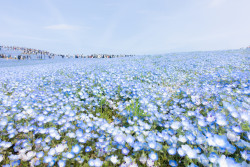
January 6, 2011
Kansha
Elizabeth Andoh’s new cookbook teaches to appreciate what you eat
By Metropolis
Originally published on metropolis.co.jp on January 2011

Photo by Kristen McQuillin
As 2011 begins, it’s only natural to look back at the previous few weeks of bonenkai, Christmas parties and general over-indulgence and think: Lord, never again. Many New Year’s resolutions focus on improved eating habits and changing your diet, but where to start? Culinary doyenne Elizabeth Andoh has a few helpful pointers in her new book, Kansha, a selection of vegan recipes that might just change the entire way you think about food.
“The New Year is a time of renewed ambitions,” she tells Metropolis. “Whether or not you’re interested in a change of diet, trying something new like vegan or Japanese cuisine; want to be more conscious of the environment—that is, create less waste; or want to make a new start and be more mindful, Kansha has something for everyone.”
The book’s title translates as “appreciation,” and Andoh explains that it was inspired by “a sense of appreciation for not only what nature provides, but also for clever people in their ability to bring food to the table.
“Whether it’s a clever chef who has done something unusual with a turnip, or an artisanal maker of tofu—sure, you’re able to [make tofu] yourself, but are unlikely to—my kansha, or appreciation, is for the guy who actually does it.”
Deeply rooted in Japanese Buddhist philosophy, kansha, says Andoh, can be experienced and practiced by anyone, anywhere. It encourages the preparation of nutritionally sound and aesthetically satisfying meals that avoid waste, conserve energy, and preserve and sustain natural resources. Using food fully demonstrates appreciation for nature’s edible gifts.

Food photos Copyright © 2010 by Elizabeth Andoh, Ten Speed Press, a division of the Crown Publishing Group, Berkeley, CA. Photo by Leigh Beisch. Reprinted with permission.
“Nothing goes to waste in the kansha kitchen!” she stresses. Proper menu planning, or kondate, is central to this—especially the principle of ichi motsu zen shoku, literally “one thing, entirely eaten,” which encourages the use of all edible plant food parts from peels to roots to flowers. “Daikon, with its different flavor and texture profiles, is a great example of this,” she says.
Continuing with the non-waste theme, packaged foodstuffs such as miso and soy sauce are also revitalized, and transformed into flavor-boosting condiments. Another ingrained culinary practice is kondate-zukushi, in which a seasonal ingredient is selected and prepared in a multitude of ways—an idea that will be familiar to viewers of the Iron Chef TV series, which was based around the same concept.
So how do you make the leap from kansha theory to practice?
“It’s a rhythm… you need to organize yourself,” says Andoh. “ Kansha is a pace, a mindset, an attitude, an approach. It’s not something you start ‘x’ number of hours before a meal. It’s an ongoing process.
“But it’s not time consuming,” she continues. “With proper planning and setting a routine, you lose no time at all. For example, this may be as simple as soaking some konbu overnight to make a stock for some soup. Or it may be using leftovers from one meal—turnip peels, for example—as the basis for the next.”
 Like many of her culinary peers, Andoh has also embraced the Web to get her message across. At the end of last year, she launched a kansha-focused online culinary classroom that includes workshops, additional reading and bonus recipes.
Like many of her culinary peers, Andoh has also embraced the Web to get her message across. At the end of last year, she launched a kansha-focused online culinary classroom that includes workshops, additional reading and bonus recipes.
“I’ve been wanting to do online classes for a long time,” she says. “The workshop lessons complement the recipes from Kansha. For example, a lesson might explain in greater detail decorative elements and what is needed to plate a dish; this step might have received only two sentences in the book.”
Returning to the book in question, Andoh reiterates her gratitude for nature’s harvest and the efforts of those who make remarkable food.
“I hope people become intrigued enough to give Kansha a go and begin cooking things that might seem a little more trouble than they’re worth,” she says. “It’s a very interrelated book, and users will find they’ll learn more from one recipe than they ever intended to. I hope that people can take that leap of faith… I want my readers to become more involved.”
 Kansha: Celebrating Japan’s Vegan and Vegetarian Traditions by Elizabeth Andoh (Ten Speed Press, 2010, 304pp, US$35) is available from major bookstores and Amazon Japan.
Kansha: Celebrating Japan’s Vegan and Vegetarian Traditions by Elizabeth Andoh (Ten Speed Press, 2010, 304pp, US$35) is available from major bookstores and Amazon Japan.
For more information see www.kanshacooking.com







